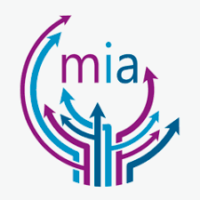The Importance of making a Safety Plan

By: Sharon Langer, Esq.
One of the most important things for any victim of abuse to consider is their safety and the
safety of their children and pets. That is why it is important to make a safety plan.
A safety plan is for:
• individuals living with an abuser – because danger can occur at anytime
• individuals planning to leave – because few abusers allow their partners to leave
peacefully
• individuals living away from the abuser – because danger often increases after a survivor
leaves or ends the relationship
These are the things that Florida’s Coalition Against Domestic Violence suggests need to be done
to keep a victim safe:
• Identify a safe place to go if an argument occurs – avoid rooms with no exits (bathroom)
or rooms with weapons (kitchen).
• Calls for assistance should be made from phones in safe locations.
• If you use email or instant messaging, use a computer and an account your abuser does
not know about, or use a more private computer at a trusted friend’s house, a library or
an internet café.
• If someone is threatening you, your children, or pets, take the threats seriously.
• Keep important items in a bag with someone you trust. Items include your identification
papers/cards, keys, cell phone, bank statements, money, medicine, pictures of the family
that include the abuser, proof of income, financial statements, visas, passports, green
cards, insurance documents, birth certificates for you and your children, your partners
personal information including date of birth, social security number, place of
employment, license plate number.
• Change your shopping habits by choosing different grocery stores, retail outlets, etc. and
change your travel routes to and from the stores.
• Change your travel routes to work, school, or places you travel to on a regular basis.
• Request confidentiality when working with agencies and religious organizations.
• Establish a code word so that family, trusted friends, teachers, or co-workers know when
to call for help.
• Contact your local certified domestic violence center for assistance with safety planning.
Miami-Dade County has many resources and supports for victims. We have created an extensive
network of providers and they can all be accessed at our one-stop Coordinated Victims
Assistance Center at 2400 S. Dixie Hwy. (305) 285-5900. If you have any questions you can reach
me at sharon@justdigit.org.













